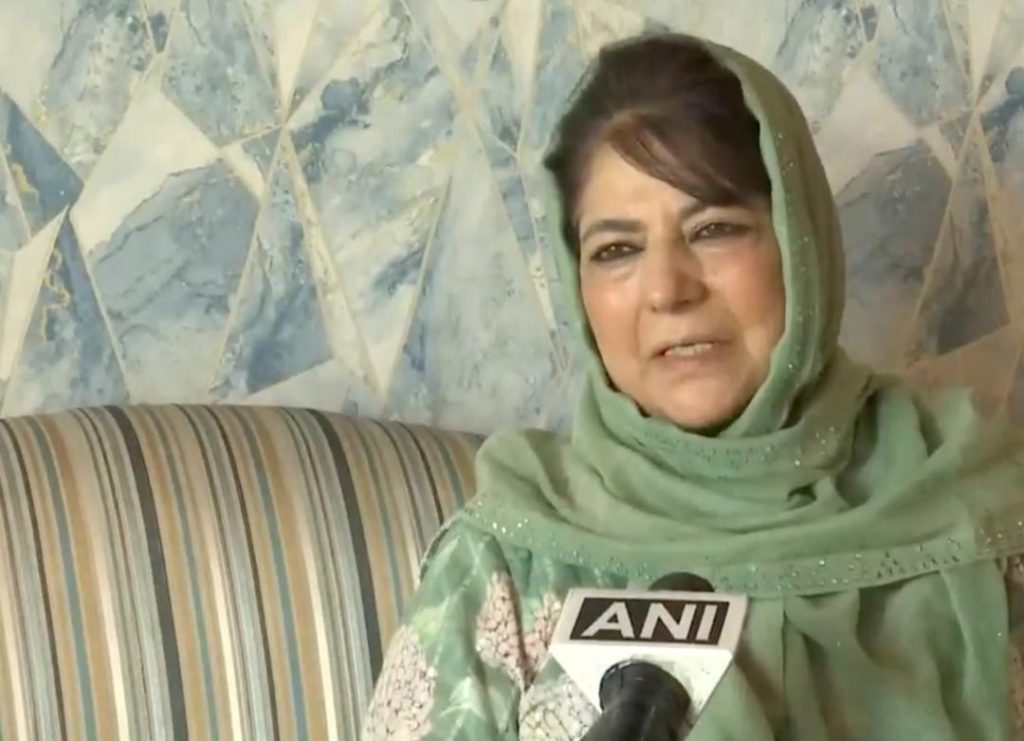
Should Have Done It Earlier: Mufti on Op Sindoor Delegations
The recent announcement by the Indian government to form seven all-party delegations as part of its diplomatic outreach following Operation Sindoor has sparked a heated debate in the political circles. The move is seen as an attempt to strengthen ties with neighboring countries and to resolve outstanding issues through peaceful means. However, the PDP chief Mehbooba Mufti has expressed her reservations over the government’s initiative, stating that what they are doing today, they should have done earlier.
In an interview, Mufti emphasized that the government’s move comes too late in the day. She highlighted that the issues that India is facing today, such as cross-border terrorism and border tensions, could have been resolved earlier if the government had taken a more proactive approach. “War is not an option when you are a nuclear power,” she added, implying that India’s nuclear capabilities should be used for deterrence and not for aggression.
Mufti’s comments come at a time when the Indian government is facing intense pressure to resolve the ongoing border tensions with China and Pakistan. The formation of the all-party delegations is seen as a step towards engaging with these countries and finding a peaceful resolution to the issues. However, Mufti’s criticism suggests that the government’s efforts may be too little, too late.
One of the key concerns raised by Mufti is the lack of a coherent policy towards Pakistan. She argued that the government’s approach towards Pakistan has been inconsistent and lacks a clear vision. “Pakistan is not a monolith, it’s a country with different factions and ideologies,” she said. “We need to engage with all these factions and find a way to resolve our issues peacefully.”
Mufti’s comments also highlight the need for a more nuanced approach towards diplomacy. She emphasized that diplomacy is not just about sending delegations and holding talks, but also about building trust and understanding. “Diplomacy is not just about talking, it’s about building relationships and trust,” she said. “We need to have a more pragmatic approach towards diplomacy and engage with other countries in a way that is respectful and meaningful.”
The PDP chief’s criticism of the government’s initiative also raises questions about the role of opposition parties in the country. Mufti emphasized that opposition parties have a crucial role to play in holding the government accountable and providing an alternative vision for the country. “Opposition parties are not just meant to criticize the government, but also to provide an alternative vision and work towards resolving the country’s issues,” she said.
The formation of the all-party delegations is also seen as a step towards strengthening ties with neighboring countries. Mufti emphasized that India’s relations with its neighboring countries are crucial for its economic and strategic interests. “We need to engage with our neighboring countries in a way that is respectful and meaningful,” she said. “Our relations with these countries are crucial for our economic and strategic interests.”
However, the PDP chief’s criticism also highlights the challenges that India faces in its relations with its neighboring countries. Mufti emphasized that the country’s relations with Pakistan and China are complex and multi-faceted, and require a nuanced approach. “Our relations with Pakistan and China are not just about border tensions and trade, but also about regional security and stability,” she said. “We need to have a more comprehensive approach towards these countries and engage with them in a way that is respectful and meaningful.”
In conclusion, Mufti’s comments on the government’s initiative to form all-party delegations as part of its diplomatic outreach following Operation Sindoor highlight the need for a more nuanced approach towards diplomacy. The PDP chief emphasized that what the government is doing today, it should have done earlier, and that war is not an option when you are a nuclear power. Her comments also raise questions about the role of opposition parties in the country and the need for a more pragmatic approach towards diplomacy.






